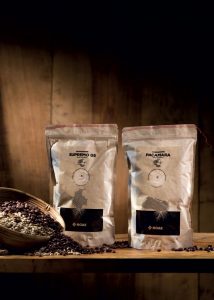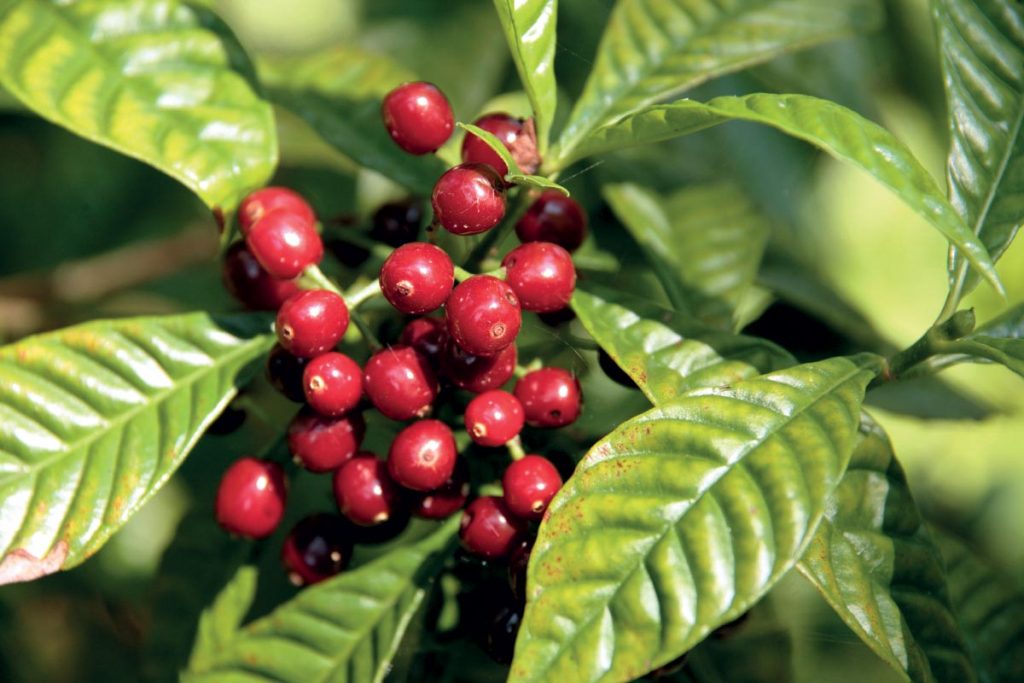Since its beginnings, Moak has been following the way of innovation combined with a handmade-roasting production, firmly believing in this business model, which always focuses on people and their environment. This is why the company started a direct dialogue with small producers all over the world and visited their plantations, uncontaminated territories free from pesticides. The best monorigins were chosen in these places. Once in the company, the beans, treated like precious stones, are roasted in the old 15 kg Petroncini, which is still working after 50 years and proves a passion that never changed in all those years. Each of the five monorigin varieties not only tells a story, but also offers coffee enthusiasts and lovers the real taste of such drink.
Line of Monorigins
Supremo GS – Columbia Cordillera Central
You need to travel for 3 days to reach San Juan de la China in Tolima. Then, another hour by motorbike and a 20-minute walk to get to the coffee plantations of Ernest Gonzales. His company, Pradera, is a steep but fertile land with volcanic soil, and free of pesticides. Each type of monorigins is hand processed. Thatis why you need a precise time to produce this fantastic round coffee featuring high but pleasant acidity as well a s its typical fruity notes.
s its typical fruity notes.
Pacamara – El Salvador
Being in front of the scenery of the protected forest in the small state of El Salvador, along the wide strip of organic land extending from Mexico to Panama, is absolutely exciting. San Vicente volcano dominates few metres away, which presence makes El Carmen’s cultivated land even richer. Here, at about 1,400 masl, one of the most refined ‘speciality coffees’ is produced: Pacamara, coffee with fine acidity that delights for its contamination of citrus fruits and spices.
Bourbon – Ruanda
Before arriving in Nyamagabe, south of Rwanda, the country of thousand hills, we let ourselves be influenced by breathtaking sceneries: a succession of valleys, upland and watercourses. A charismatic woman welcomes us at the Bufcoffee company once we arrive at the small station of Remera: Mukashyaka Epiphanie. We immediately realize why: the 1994 Genocide left her a widow with seven children, but she didn’t lose heart and relaunched the small planta- tion offering work to more than 4 thousand women, who produce precious coffees with passion every day.
Orquìdea – Costa Rica
We are in the beautiful area of Costa Rica. For over the 30 years, in Pérez Zeledòn, small district of the Brunca Valley, Fabio Fonseca, together with his wife and sons, has been meticulously producing Catuai, one of the most refined varieties of Arabica. We reach the colourful promontories and before admiring the red berries, we walk through luxuriant tropical fruit trees, a natural cover shadowing the coffee plants. The handpick- ing together with the process techniques make this monorigin one of the finest coffees in the world.
Old Kent – India
During the trip that leads us to Madikeri, the Indian region of Coorg – one of the 25 biodiversity hot spots of the world – we are fascinated by the lush forest winding through coffee plantations. Here, the refined Arabica plants grow under the shade of eucalyptus, teak and impressive rosewoods. We reach the Old Kent, a reserve develop in 1800 thanks to Mr Wright which is nowadays run by the Thaikappa family, who keeps on producing a really excellent variety of Arabica with the same passion and great care in the process- ing methods.

